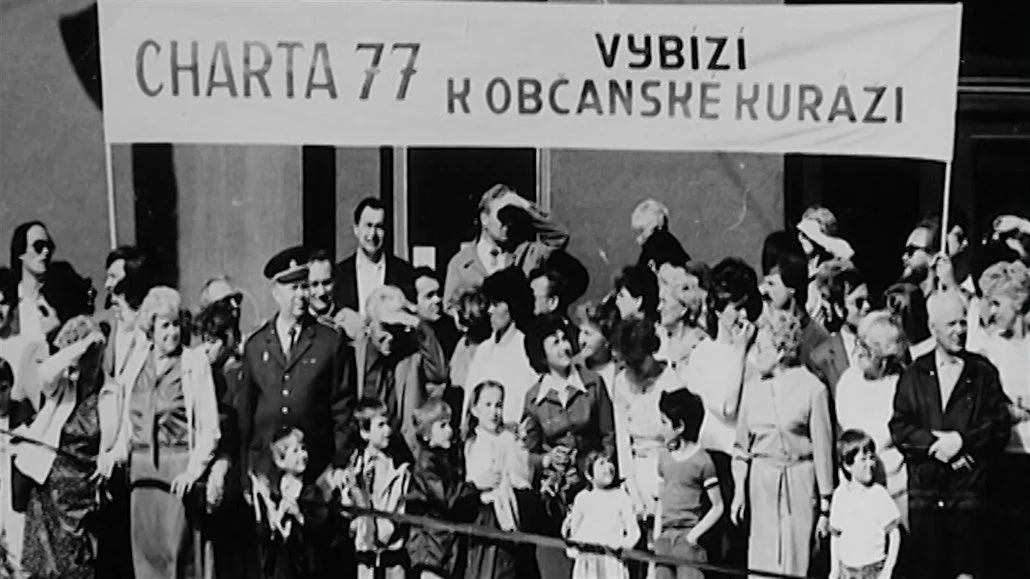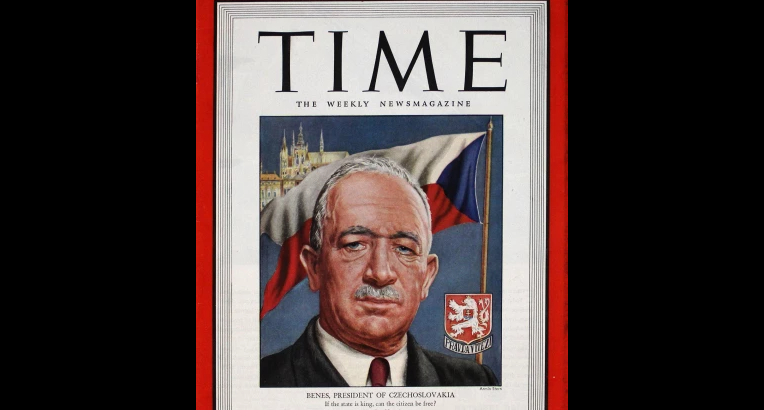Charter 77 is a declaration of human rights published by a group of Czech citizens. It declares that “Charter 77 is not an organization,” rather an idea. Support for Charter 77 mounted as publicly supporting it became more dangerous and life-uprooting. Even still, private and public support for the declaration of peaceful resistance continued, even 40 years into it’s creation.
George "Papa Bear" Halas
The Chicago Bears began with American football coach, owner, and NFL administrator George “Papa Bear” Halas, born in Chicago, Illinois to Slovak immigrants. Initially, however, Halas began as a player who joined the Navy during World War I, before becoming a player-coach. Throughout his life, “Papa Bear” Halas invested his life into football, winning six NFL championships as head coach while practicing many innovative routines that allowed him and his team to win.
Landscapes of Czech Painters: Slavíček and Zrzavý
Antonín Slavíček was an impressionist painter who kickstarted the Czech modern art movement. Jan Zrzavý, a painter whose work was defined in terms of neoclassicism and magic realism, also kickstarted the Czech modern art movement. Both artists painted landscapes in ways that captured both the past and the imagination of the Czechoslovakian nation.
Edvard Beneš (28 May 1884 - 3 September 1948)
Edvard Beneš was born in Kozlany, Bohemia during the Austro-Hungarian Empire’s rule, but by October 14, 1918, he lived in a different nation, as the empire collapsed in place of the then-new Czechoslovakia. He served as the council chairman for the League of Nations to support the balance of powers in Eastern Europe, creating the “Little Entente.” Eventually, Beneš would succeed Masaryk as the Czechoslovakian president, faced with the threat of Germany, and the rest is history.
Eliska Junkova: Racing into History
Eliška Junková is the first woman to win the Grand Prix, in 1927. Even before, Junková was “Queen of the Steering Wheel,” a well-earned title that she worked towards since 1922. Her dedication to racing began with her dedication to her husband, Vincenc “Čenêk” Junek, whom she met at her job at the Prague Credit Bank.
Milena Jesenska (10 August 1896 - 17 May 1944)
Milena Jesenska life was rather adventurous, including her commitment to a mental hospital for nine months, due to her father and his dislike for her then-boyfriend, Ernst Pollak. After her marriage to and divorce from Ernst, she remarried to Jaromír Krejcar and had a daughter with him. Between both marriages, she was dedicated to journalism, which she engaged in as she document the activities of Nazi Germany over Czechoslovakia. Unfortunately, in her efforts to help those negatively affected, she was arrested and deported to a concentration camp.
Palach Week
Jan Palach was a Charles University student who protested the Soviet-led invasion of Czechoslovakia and the Warsaw Pact by self-immolation. His protest inspired further protests, including a hunger strike in Wenceslas Square. These protests further inspired resistance throughout the rest of Prague, and then Europe.
The Czech Response to the American Civil Rights Movement
The American Civil Rights Movement became a method of propaganda against the United States to gain support and sympathy from non-socialist states. The Czechoslovakian government would invite activists to the nation so that communism would be promoted, including singer Paul Robeson, who would sing at the Prague Spring classical music festival in 1949. Between the 1960s and 1980s, Czechoslovakia continued to push communism in African nations, broadcasting the benefits of communism and what it would provide to Africans.
Frantiska Plaminkova
Františka Plamínková, founder of the National Council of Women, was a trailblazer in feminism and women's rights. Her fight for women's suffrage and self-personhood was a long one, beginning in 1903 with the Czech Women's Club. Sadly, she was one of many executed by the Nazis in retaliation to Reinhard Heydrich's assassination. Milada Horakova continued Plamínková's work.
Hans Krasa and Terezin
Born in 1899, Krasa was a young musical prodigy who composed his first songs at the age of ten. By the age of 39, he would compose his most famous song, Brundibar. By the age of 40, in 1939, the occupation of Czechoslovakia by Nazi Germany took place. After their occupation, Krasa was arrested by the Nazis and deported to the Terezin concentration camp, forced to compose as a part of a propagandic smokescreen.
David Cerny: Lilit Sculpture
For over a year, David Cerny and his associates have toiled away at the completion of the recently completed "Lilit" sculpture, placed in the Karlin District of Prague. Cerny himself began his artistic career at the Academy of Arts, Architecture, and Design in Prague, continuing to build his knowledge and network with several artist residencies in Switzerland and the United States. His entry into fame began with infamy as he painted a Soviet tank monument pink as an act of "civil disobedience." Soon after did his career take off, eventually making him an impactful cultural installation in Czech society.
Beginnings of Bohemia: Borivoj I and the Premyslids
Bohemia's beginnings started with Svatopluk I of Great Moravia giving Borivoj I control of the of the soon-to-be Bohemian lands. Even early in his career as the first duke, his kingdom faced war as he supported Svatopluk I during his war against Louie the German and the Eastern Franks. Also early in his career, he faced controversy from fellow elites and had to involve himself in more war to maintain his power and position. Beginnings aren't easy!
Traditional soups
Magic on Charles Bridge
Vaclav Havel
Vaclav Havel, Czechoslovakia’s first president, also lived as an activist, poet, and playwright. Communist rule made Havel's life hard, including his education, but he prevailed, having attended university. Even into his adulthood, Havel faced political strife, having his plays banned from viewing and being harassed by the government due to his activism. Was the trouble worth it for the first post-Communism president?
St Wenceslas, Patron Saint of Bohemia
St Wenceslas Day, which honors Duke of Bohemia Wenceslas I, is celebrated on September 28th in the Czech Republic. His story begins with his Christian grandmother Ludmila, having been raised by her up to the time Wenceslas I's mother, Drahomira, had Ludmila assassinated to become Queen Regent. After regaining the throne from his mother, Wenceslas continued to reign for 14 years until his death.
Great Moravia: Svatopluk I and Mojmir II (870-907)
The story of Great Moravia continues with the arrest of Svatopluk I's arrest. Becuase of Svatopluk's supposed death, the Moravians, in anger, elected Slavomir in his place until Svatopluk came back. After the death of Svatopluk II, his son Mojmir II took his place, after which the kingdom saw some hard times, including wars.
Impacting the Arts
There are several Czech artists who have and continue to influence the world, and four of them are highlighted in this article. These artists are Jiri Trnka, Anna Daucikova, Libuse Jarcovjakova, and Yemi AD. From film to painting, glassblowing to photograph, and performance to dance, these artists present a variety of expressions that have influenced the world.
A Scalpel, Two Annas, and a Glass Ceiling
This article describes the lives of two Annas, Bayerova and Honzakova, who pursued medicine during the era of women's suffrage. Both doctors faced obstacles to their passions, but prevailed, such as Anna Bayerova graduating from the University of Bern due to being unable to receive her degree in Czechoslovakia. Anna Honzakova had an easier time pursuing medicine but was initially refused participation in her exit exam until the University of Prague relented.
























